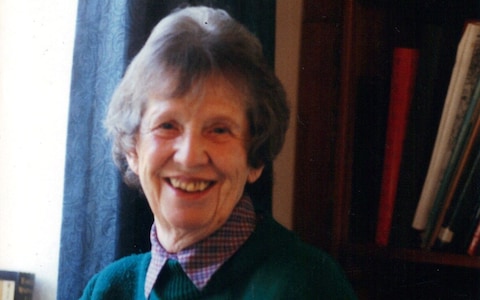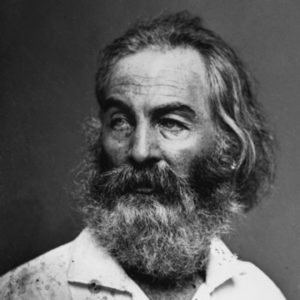We have decided to create the most comprehensive English Summary that will help students with learning and understanding.
The Story of My Life Summary Chapter 23
In this chapter, Helen writes about her feelings of gratitude to the people who had touched her life in different ways, sometimes positively, sometimes otherwise. She acknowledges the immense contribution of her friends in her life.
In this chapter, Helen expresses her gratitude to a number of people, some famous and some unknown, who enriched her life over the years. The hands of people whom she met were ‘dumbly eloquent’ to her, she could understand their moods and emotions just by the feel of their hands as they clasped hers. Some people with their ‘frosty finger tips’ were empty of joys while some hands had ‘sunbeams in them’ which warmed her heart.
She expresses her love and gratitude to Bishop Brooks, who helped her to connect with the spiritual side of life and to understand that behind all religions runs the same message of brotherhood of man and fatherhood of God. He also taught her that the greatest of all is love. She mentions friends from far and near, who showered her with love and warmth. She shares that she would distinguish between a warm, caring person and an indifferent one by the way they would clasp her hand.
She also reveals her irritation at people who tried to patronise her by doubting her intelligence and trying to talk down to her. She then makes a list of all the great literary figures she met and the impact they had on her life. She mentions Dr Alexander Graham Bell and the time spent with him. She mentions her appreciation of his work to improve the lives of deaf children. She makes a special mention of Mr Lawrence Hutton, and literary greats Dean Howells, Mark Twain, Richard Watson Gilder etc.
She reveals her struggle to keep up with their conversations and the delightful experience of reading the lips of Mark Twain as he read out his stories to her. Helen ends her autobiography by acknowledging the fact that it is her friends who have made the story of her life remarkable and turned her limitations into beautiful privileges.
The Story of My Life Summary Chapter 23 Questions and Answers
Question 1.
How was Helen impacted by people who were warm and sympathetic towards her?
Answer:
The warmth and sympathetic nature of some of the people in Helen’s life made her feel restful and helped dissolve her confusion, irritation and worries. It gave her the feeling that everything was fine.
Question 2.
Who were the people Helen tried to avoid?
Answer:
Helen tried to avoid people who asked her silly questions, like news reporters, and people who looked down on her, talking to her in a patronising and condescending manner.
Question 3.
What did Helen mean by calling the hands of people “dumbly eloquent”?
Answer:
Helen tried to make her readers aware that though hands cannot talk, they can still say a lot about the personality of a person. On shaking hands with people, Helen could differentiate between a warm, loving person and a cold, aloof person.
Question 4.
Why did Helen apologise to her “far-off friends”?
Answer:
Helen apologised to her “far-off friends” because she had never met them, yet they wrote to her from far-off places. She was grateful to them for reaching out to her. However, she was apologetic because she was not able to write back and thank them.
Question 5.
What did she learn from Bishop Brooks?
Answer:
Helen leamt a lot about the spiritual side of life from Bishop Brooks. The most important thing she learnt was that the underlying message of all religions was the same: the brotherhood of man and the importance of love.
Question 6.
Why did Dr Oliver Wendell Holmes cry during his meeting with Helen?
Answer:
When Helen recited a few lines from Tennyson’s poem, Dr Oliver Wendell Holmes was so moved that tears streamed down his cheeks and fell on Helen’s hand.
Question 7.
Why did Whittier call Miss Sullivan Helen’s “spiritual liberator”?
Answer:
Whittier recognised the great work done by Miss Sullivan in exposing Helen to the world of literature, and helping her to develop the passion to understand and appreciate it. Therefore, though she was blind she had a deep understanding of the classics, which enriched her soul.
Question 8.
Why did Helen feel indebted to Dr Edward Everett Hale?
Answer:
Helen was grateful to Dr Edward Everett Hale for his support and sympathy to her own self and Miss Sullivan, when they were disheartened and upset during their great struggle.
Question 9.
Why did Helen think that Dr Bell was not only a great scientist but an even greater human being?
Answer:
Dr Bell had many revolutionary inventions to his credit, but Helen felt, that his scientific ability was dwarfed by his human goodness, as he spent a lot of time with deaf children and made great contributions towards making their life easier.
Question 10.
What did Helen enjoy about her meetings with the literary giants of her time?
Answer:
Helen loved being part of the literary discussions with the great literary minds of her time, even though she was not able to understand everything they said. However, it was extremely enlightening for her to spend time listening to such conversations.
Question 11.
How did Helen describe Mark Twain?
Answer:
Helen found Mark Twain to be extremely positive and bright and imagined him to have a twinkle in his eye. He had the compassion and patience to read out his stories to Helen, who lip-read them. She felt that behind his cynical, droll sense of humour, lay a tender-hearted and sympathetic man.
Question 12.
Was Helen able to mention the names of all her friends? Why?
Answer:
Helen expressed her inability to mention all her friends because firstly, there were too many people she felt indebted to and there were many others who did not want their contributions to be made public.

